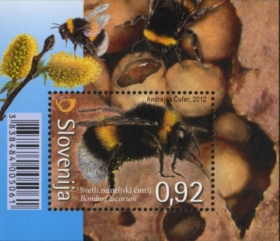A parasite affecting honeybees has been spotted in Scotland for the first time, potentially posing a new threat to our battered bee population. The new study, published in Parasitology Research, says the Nosema Ceranae parasite is already widespread in bee colonies throughout mainland Scotland. There are two possibilities,' says Dr Christopher Connolly of the University of Dundee, one of the study's authors. 'Either the parasite came in a long time ago and has gone unnoticed because it's fairly innocuous. Or it has come in more recently, spread very rapidly and could be a more serious problem. At the moment it's an unknown threat.' Bee populations around the world are collapsing under the weight of habitat change and disease. The EU recently proposed a ban on neonicotinoid pesticides after research suggested they may also be affecting bee numbers. In the UK, two species of bumblebee have been declared extinct, and the number of managed honeybee colonies has fallen by more than half in 20 years.
Source: Planet Earth, 15 February 2013
http://planetearth.nerc.ac.uk/news/story.aspx?id=1367
Reference:
Bollan KA, Hothersall JD, Moffat C, Durkacz J, Saranzewa N, Wright GA, Raine NE, Highet F, Connolly CN, The microsporidian parasites Nosema ceranae and Nosema apis are widespread in honeybee (Apis mellifera) colonies across Scotland, Parasitology Research, doi: 10.1007/s00436-012-3195-0

- Log in to post comments
